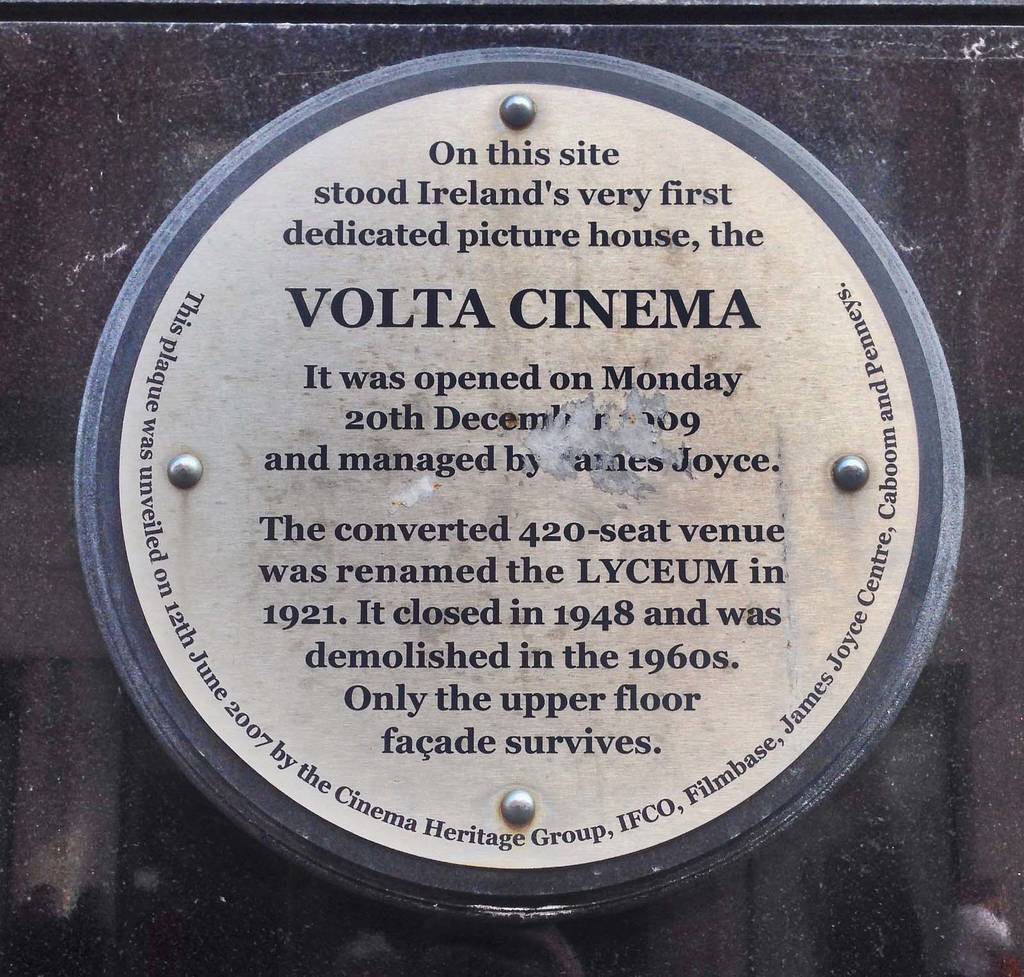
Film Matters: Please tell us about your article that is being published in Film Matters.
Maria Mutka: My article is a brief study and overview of an emerging field of cinema-literature cross sectional studies. The article argues that famous modernist writers of the early twentieth century, like James Joyce, were influenced partially both by cinema and the horrors of the First World War. These events affected how they approached their literary masterpieces, principally how they played with new notions of time and space conceptualization through the use of cinematic-like methods in their writing styles.
FM: What research and/or methodologies do you incorporate in your article?
MM: I extensively researched the secondary literature on this topic to get a sense of which writers and works most prominently had cinematic themes in them. Using the secondary sources as a guide, I then delved into works such as Woolf’s Mrs. Dalloway and Stein’s Geography and Plays. I attempted to read these pieces with an open mind, without confirmation bias, and tried to see what sections I was drawn to, having observed cinematic meaning in them.
FM: Describe the original context for/when writing this article while an undergraduate student.
MM: I originally wrote this article as a senior in high school for my senior-year thesis in humanities. I decided to edit this article as an undergraduate student as I began to study Russian film as part of my Russian studies major. Film has added so much to my understanding of Russian culture and connection with histories of Soviet-controlled countries.
FM: How has your department and/or institution supported your work in film and media?
MM: My high school thesis advisor was a wonderful mentor for me as I began to articulate my research ideas in my planning process for this paper, and pushed me forward with this topic even when I doubted its viability. A professor with whom I have done special studies in the Russian department at my college inspired me to renew my study of film as a rich, cultural medium.
FM: How have your faculty mentors fostered your advancement as a film scholar?
MM: Both of my mentors, in high school and in college respectively, have given me the toolkit and confidence to analyze film from my own perspective and with my own lens, as well as find ways to merge my broad academic interests in modernism, Russian studies, and cinema.
FM: How has the Film Matters editorial and publication process impacted the development/evolution of your article?
MM: I am very proud to have this piece published. I never imagined that I would produce such scholarship capable of that. I truly hope that I have made an impact on the field of cinematic study, as well as promoting the idea of intersectionality across fields, like cinema and literature.
FM: What audience do you hope to reach with your Film Matters article and/or what impact do you hope it has on the field of film studies?
MM: I hope that emerging scholars of the modernist periods in literature and film can read my article and be inspired to extend my preliminary findings further. I feel that my research is truly the tip of the iceberg in examining how various artistic fields impact one another. Likewise, I hope to encourage mixed media artists in their work blending together the different mediums. I believe the artistic world can only be enriched by transcending the boundaries of mediums.
FM: What are your future plans?
MM: My future plans are to continue being a film and literature buff, and keeping up with exciting new advancements, movements, and trends in film. I have loved watching and studying films ever since I was a child and, although I do not believe I will become a formal film scholar, I hope to be an informal expert my whole life.
Author Biography
Maria Mutka is an Anthropology and Russian Studies double major at Smith College. She is passionate about research and work that delves into human stories, from the field of cinema to public health.







































